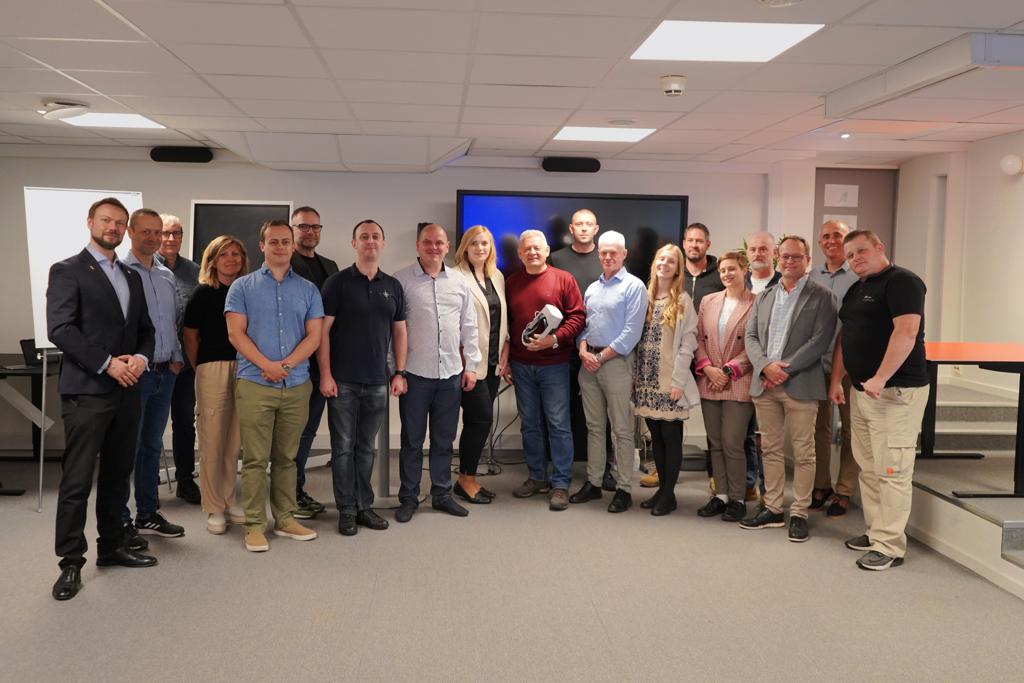In a relentless pursuit of a comprehensive approach to virtual reality (VR) environments, NATO DEEP continues to forge partnerships and explore innovative possibilities. This commitment was prominently showcased during a recent workshop that brought together participants from Ukraine, Norway, and NATO DEEP, held from the 1st to the 3rd of August in Hamar, Norway. The collaborative effort involved representatives from the Military Armored Forces Institute of NTU, the Norwegian Defense University College (NDUC), NATO DEEP eAcademy, and the Norwegian company – Fynd Reality.
The workshop served as a platform for enlightening presentations, engaging discussions, and hands-on sessions, all aimed at deepening the understanding of VR solutions for military education and training. One of the primary objectives was to foster cooperation, identify potential solutions, and synergize efforts among the participants.
A significant highlight of the event was the exchange of insights into the current VR solutions and the specific demands put forth by the Ukrainian delegation. This knowledge-sharing initiative not only showcased the existing capabilities in the field but also facilitated a deeper understanding of the unique requirements of military training.
Additionally, participants were apprised of the ongoing initiatives spearheaded by NATO DEEP eAcademy in the realm of Extended Reality (XR) and Artificial Intelligence (AI). Notably, these initiatives have been incorporated into a dedicated topic within the e-instructor certification program, emphasizing NATO’s commitment to staying at the forefront of modern military training methodologies.
The workshop’s objectives were fully realized as it successfully achieved the following milestones:
Identification of Areas of Cooperation: Through open dialogue and collaborative spirit, the participants pinpointed specific areas where cooperation between Ukraine, Norway, and NATO DEEP could thrive. These areas encompassed the development and implementation of VR-based training tools and methodologies.
Agreement on a Roadmap: The participants agreed on a roadmap that outlines the course of action for future endeavors. This roadmap includes research projects aimed at further enhancing the use of VR in military education and training.
Fostering Synergies: The workshop fostered synergies among the participants, enabling them to leverage each other’s strengths and expertise. This collaborative approach is expected to yield innovative solutions and advancements in the field of military education.
In conclusion, the recent workshop in Hamar, Norway, exemplified NATO DEEP’s unwavering commitment to advancing military education and training through VR solutions. By facilitating cooperation, knowledge-sharing, and the development of a well-defined roadmap, this event has set the stage for future advancements that promise to enhance the readiness and effectiveness of military personnel across borders.

